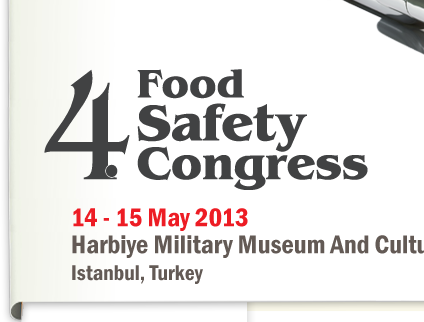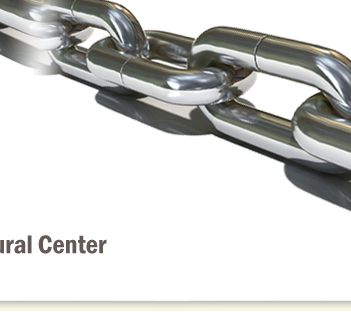|
|
FINAL DECLARATION OF THE 4TH FOOD SAFETY CONGRESS
The provisions listed below summarize the consensuses reached at the different sessions and panels held during the 4th Food Safety Congress.
- Primary production is the origin of food safety. Safe production at field and farm level is the most important link of the food safety chain, which ensures the safety of the food consumed at the table. There is a path to be followed to solve the major problems encountered in primary animal and plant production in Turkey, which are related to animal diseases, contaminants, residues and hygiene. Food safety issues at the primary production level, which stem from both lack of knowledge and problems led by smallholders, cannot be underestimated. To remedy this situation, farmers need to be supported, sustained, and rendered master producers of their domain. The increase of the number of producers’ organisations and their active involvement, as well as the adoption and widespread use of Good Agricultural Practices would also provide significant contribution.
- It is evident that small and medium sized enterprises (SMEs), and in particular micro-SMEs, have and will continue to have difficulties in fulfilling the requirements of newly published national legislation. Therefore, it is required that micro-SMEs and SMEs be supported and sustained for their performing production in compliance with national food safety legislation. In particular, local and traditional production, and the improvement and extended application of food safety standards should be supported.
- Unrecorded production and unfair competition remain two major problems. To ensure food safety and overcome these two problems, it is essential that an integrated approach be followed with the cooperation of all stakeholders.
- It should be borne in mind that the most basic objective of food safety is to protect consumer health. The active inclusion of consumers in each and every stage of the food safety system should be ensured. Various programmes and tools should be made use of, by educational institutions in the first place, to reach the different social levels and to raise awareness on food safety and nutrition.
- Scientists agree that, cancer, the disease most feared by consumers and the disease most frequently used to scare consumers, is in fact well-known by consumers and its underlying reasons are well understood. Therefore, scientists suggest that strategies for the control of cancer should be developed taking into consideration this awareness level. Experts point out to the importance of balanced and adequate nutrition, the scientific invalidity of the natural vs. artificial approach, and the damage caused to public health by the misdirection of the public to false risks.
- Food safety is under the attack of serious information pollution. This results in the misdirection of consumers, the overlook of the real risks, and an increased tendency towards unrecorded production. Even official declarations made by the competent authorities fail to overcome misperceptions. To address these shortcomings:
- A well-structured independent scientific board should be established for the sharing of accurate information on food risks, the building up of trust in consumers, and the assessment of risks.
- Information made available to the public on food risks should be based on scientific evidence. The food and food safety issues are of multidisciplinary nature and require interprofessional communication. When making a statement to consumers, these aspects should be taken into account.
- Legal arrangements should be made to impose sanctions on persons, who cause information pollution and the misdirection and panic of consumers, and who do not have any expertise in the field on which they make declarations. Rules should be established for the responsibilities assigned to the media.
- The methodology followed by the Ministry of Food, Agriculture and Livestock in declaring unfavourable inspection results is of utmost importance for consumer perception. Official declarations should avoid misperception. Procedures and principles should be clearly laid down.
- Official food controls should be extended effectively, such that unrecorded production is also covered. At present, the controls of the Ministry of Food, Agriculture and Livestock are mainly focussed on the inspection of the realisation of the obligations of holdings related to registration and approval. The vision of official inspectors, being based on risk-based inspection, is open to improvement. In this respect:
- To ensure the proper and deserved performance of the tasks assigned to the Ministry of Food, Agriculture and Livestock, an adequate number of qualified staff should be employed. Employed inspectors should attend long-term periodical trainings.
- It should be determined in which fields and how the official controls of the Ministry can be outsourced.
- Food controls should be risk-based. The sharing and assessment of epidemiological data should be systematic and the food safety system should be managed using this data.
- The Ministry of Health should take action to fulfil its responsibilities related to food safety, and should develop the necessary systems in view of its permanent responsibility in this field.
- Turkey lacks a system that would realistically correlate food safety with public health and that would systematically assess outputs. The Ministry of Food, Agriculture and Livestock and the Ministry of Health should collaborate to build a strong cooperation between food safety and public health.
- Management of the supply chain constitutes the basis of safe food production and the minimisation of losses. To manage the supply chain, the use of the internationally accepted Global Food Safety Initiative (GFSI) approach should be encouraged and the traceability of food back to raw materials should be ensured. The solution of problems encountered in the supply chain in relation to cold chain applications depends on the proper design of cooling plants and the development of effective temperature control systems. Support should be given to the development of cold chain applications.
- As science and technology advances, new concepts emerge in relation to foodborne risks. Research should be conducted for the detection and management of emerging hazards. Apart from the correct management of known risks, preparedness should be ensured against emerging new risks.
- In the 21st century, Food Defence Systems must be on the agenda of national authorities and private sector representatives. These systems should also be given importance in Turkey, and the competent authority should develop a systematic approach.
- Given that food safety is a multidisciplinary field, support should be given to the conduct of multidisciplinary research and to put the relevant research outputs into implementation. The incorporation and contribution of social sciences should not be ruled out.
Media Communication: UMUT KABLAN (ERA MEDIA) 0.534.080 32 10
http://www.foodsafetycongress.org/
INVITATION

Dear Participant,
We have the honour of announcing the 4th Food Safety Congress which will be held at Harbiye Military Museum on 14-15 May 2013 in Istanbul with the collaboration and support of world's largest professional organization – International Association for Food Protection (IAFP) – Turkish Ministry of Food, Agriculture and Livestock and 29 other professional organizations and NGOs.
...continue
 TFSA – TURKISH FOOD SAFETY ASSOCIATION TFSA – TURKISH FOOD SAFETY ASSOCIATION
Turkish Food Safety Association (TFSA) is Turkey's first and only non-governmental organization in the field of food safety, set up in 2004 to provide communication of all stakeholders including consumers, producers, government, academicians and food safety employees and to facilitate developments in “from farm to fork” process.
For more information please click the link..
|
|







